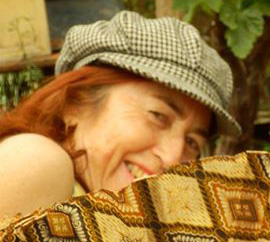I was talking to a friend recently who was struggling to find time to write a book whilst holding down a job and a busy life, then that same day I stumbled across this old post by Claire Scobie written in 2011 on the same subject. I love it when that happens!
I think this article is just a relevant today as it was back in 2011 so I decided to share it with you today. I hope you find it helpful.
 _______________
_______________
Writing between Jobs by Claire Scobie
A question often raised in my workshops is how to find time to write when you already have a full-time job. As writing is such an insular profession, I always enjoy hearing how other writers do it. Last week I went to some inspiring sessions at Sydney Writers' Festival. The weather was balmy, the queues were long—and good-humoured—and writers from around the globe shared their tips to packed audiences.
In one session entitled Au Pairs, two writing couples—James Bradley and Mardi McConnochie, and Mandy Sayer and Louis Nowra—discussed how they live (or not) with each other and their work. James and Mardi juggle their writing careers with two young children under five; Mandy and Louis live 100 metres apart and spend their days feverishly writing apart, and their evenings at the local Fitzroy Hotel in King’s Cross.
But it was when Mardie discussed her latest novel, The Voyagers, that I was intrigued. Mardie has worked as a playwright, written a clutch of novels and works three days a week writing advertising copy. I’m paraphrasing here, but she said that once she’d conceptualised and planned out her latest novel (and she’s a self-described ‘great planner), she then wrote it one day a week, with a sprint of several weeks at the end to finish it, and it took four years.
I’ve heard another writer say that he cut his working week down to four days and took every Wednesday off to write. He preferred taking a day off mid-week, so his colleagues didn’t think he was just taking a long weekend. Another writer friend carves out blocks of time (2 or 3 hours) to write her book in cafes and juggles that with a part-time legal job.
Of course, if you’re an early riser you can do what Bryce Courtenay did, and get up at 5 am and write for three hours before going to work. Or if you burn the midnight candle, like Téa Obreht, whose novel The Tiger’s Wife was named on the New Yorker’s list of Top 20 Writers under 40, you can write all night. During one chilly New York spring, 25-year-old Obreht would start at 9 pm and write til 6 am.
Whatever your bio-rhythms, it you only have small parcels of time to write, it helps to break down your project. Set yourself tasks (for 20 minutes or one-hour) and stick to them.
These days it is such a luxury to be able to write full time. But it’s heartening to know that you can do it in between everything else. Sure, it takes longer, but if you have a book at the end, it’s worth the effort.
So how about you, when do you fit it in?

 Pitch Your Book Australia (PYBA): What do you think about the Pitch Your Book competition?
Pitch Your Book Australia (PYBA): What do you think about the Pitch Your Book competition? _______________
_______________